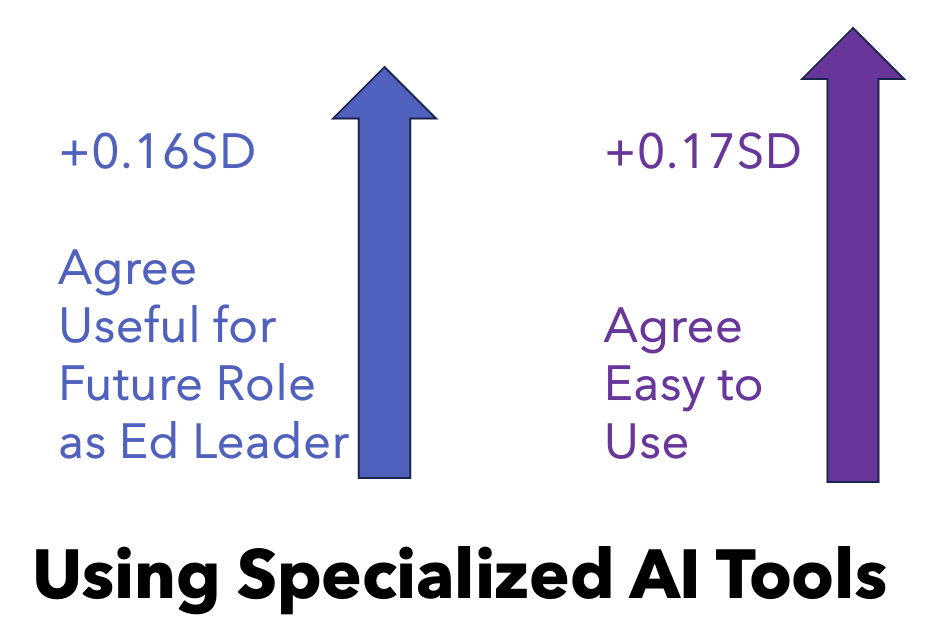
K-12 education has entered a new frontier where educators are exploring the power of artificial intelligence (AI) in innovative ways to enhance student outcomes. While many human-AI collaborations focus on efficiency, some venture into uncharted territory, exploring qualitatively new and improved decision-making. Dr. Seth B. Hunter, Assistant Professor of Education Leadership and Senior Fellow of EdPolicyForward, the Center for Education Policy at George Mason, has embarked on one such venture by exploring how AI can assist aspiring and current educational leaders in making better school improvement decisions based on current, rigorous, and technical education research.
School leaders nationwide regularly engage in school improvement planning, setting performance goals and designing action plans to achieve them. While the degree to which school leaders explicitly base their plans on rigorous research may vary, it is crucial for all school leaders to consult relevant research to design the most effective plans. K12 educators do use research for decision-making and practice; however, they often overlook rigorous, technical research written for academic audiences, which could provide the best recommendations for school improvement.
Dr. Hunter is exploring novel ways to bridge the gap between technical academic research and its use for school improvement via AI-enabled tools. These tools focus on finding the most rigorous academic research and translating it for lay audiences. In a recent pilot study, Dr. Hunter randomly assigned these tools to a Northern Virginia cohort of aspiring principals enrolled in Mason’s Education Leadership MEd program; the control group was in the same program, but it found and made sense of research using traditional means. The MEd students reported that using the specialized AI tools was significantly easier than using conventional means; those using AI-enabled tools were also much more likely to reportthat finding and making sense of research would be helpful in their jobs as future leaders. These pilot study results suggest that AI-enabled tools can shrink the gap between rigorous and technical academic research and K12 research use.
those using AI-enabled tools were also much more likely to reportthat finding and making sense of research would be helpful in their jobs as future leaders. These pilot study results suggest that AI-enabled tools can shrink the gap between rigorous and technical academic research and K12 research use.
In future work, Dr. Hunter will scale up this intervention with current principals and central office administrators, explore how AI tools use changes to school and district improvement plans, and see if those changes affect student outcomes.

